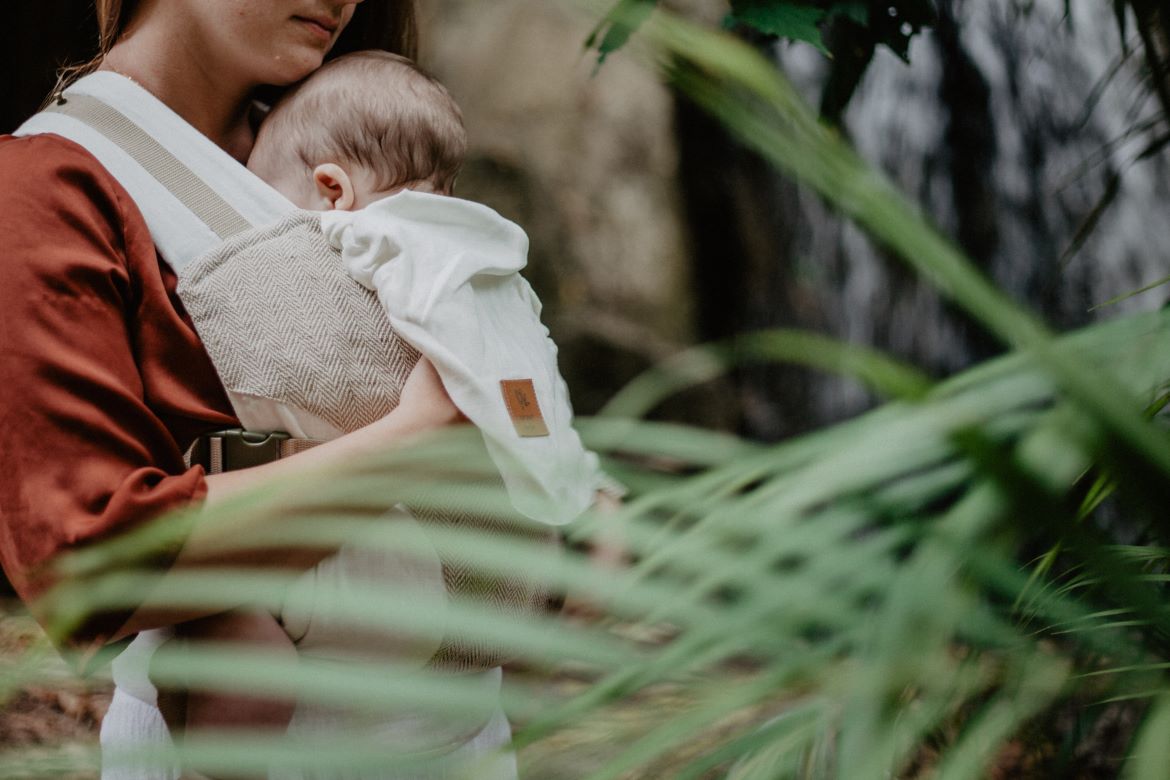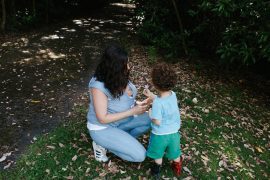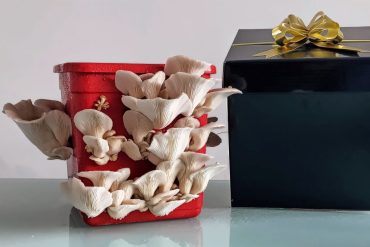By Dr. Rosie Knowles
The mother-baby dyad is truly the foundation of human health and wellbeing. As Donald Winnicott famously said, “there is no such thing as an infant…”. A baby cannot meaningfully exist outside a relationship or the environment on which they depend; usually this is their mother’s body. Mothers and babies have evolved alongside each other and they belong together.
For infants to thrive, mothers must thrive too: physically, emotionally, mentally. Too often all the focus is only on the needs of the newborn (which are of vital importance), but don’t forget, when a baby is born, so is a mother.
Maternal mental health matters
Mothers are the foundation of society; it is they who (usually) do the bulk of the child-rearing, and shape the brains of the next generation. They need support, which should begin in pregnancy and take a significant step up at birth (and not fade away after the first few weeks!)
Did you know that suicide is the leading cause of death in the first year after birth? This is a tragic statistic.
Read about infant mental health and how to build a happy brain here.
Close contact is therapeutic
Oxytocin, the hormone of love and bonding, is released during labour and birth, and is an essential part of breastfeeding.
However, it is also released through close contact, soft touch, the sight, scent and feel of someone you love. Oxytocin has an effect on the stress response via the hypothalamic-pituitary axis. It reduces the effects of cortisol (the stress hormone), reducing anxiety and providing a calming effect. This is why hugs and stroking from someone you trust are often so good when you feel bad.
Many hospitals encourage early skin-to-skin contact as an essential part of mother and baby wellbeing, based on well-established research.
Oxytocin is a key part of building a baby’s secure attachment relationship to their mother, and also for mothers to bond to their babies. This is why we encourage plenty of holding and time in close contact, engaging in responsive parenting.
“Attachment to a baby is a long-term process, not a single, magical moment. The opportunity for bonding at birth may be compared to falling in love – staying in love takes longer and demands more work.” T. Berry Brazelton
There is a bit of a myth, peddled by glossy parenting magazines and films and internet memes, that you will fall in love with your baby at first sight: an instant sunburst of the most intense and wonderful love of all the moment baby arrives, and it will be an absolutely transformative experience.
“The day I became a mother was the most magical day of my life.”
“I never knew what love was till my baby arrived.”
So many families are taken aback when they don’t experience this. Women can often feel guilty about this: if pregnancy, labour and birth haven’t gone how we hoped; if we feel lonely and isolated at home rather than surrounded by support; if it all just feels damn hard. So we then feel like there is something wrong…. and that leads on and on, towards feelings of failure or inadequacy.
Sometimes, yes, there is that wonderful experience, when new parents have been well supported all the way through pregnancy, and had the chance of a holistic labour and birth. (And by holistic, I mean where all the needs and wishes and safety of the whole family are taken into account wherever and however baby arrives).
But too often, it isn’t like that, however well prepared everyone is. It is important to acknowledge that this is the reality for many. “Speaking this secret” may feel terrifying; but you will find so many other mothers around you feel the same.
Healing begins when we feel heard
The good news is that biochemistry isn’t an act of willpower or skill; hormone release happens without conscious control.
Love can, and will grow, with time spent together, and close contact
Building secure attachments takes time and is a two-way process. A parent’s brain changes when their baby is born; they need to learn how to love this tiny, needy human being. Babies don’t yet have the skills to communicate and have so many needs, that everything can feel like guesswork.
When you are used to making decisions and being in control of your own life, this sudden unpredictability can be a big challenge, the responsibility is scary and daunting.
Everything hurts. Nobody is getting enough sleep. And then unrealistic family and societal expectation is piled on top.
It is easy to feel like things are falling apart, and it’s not the magical sun-kissed perfect Insta-experience you had expected. We don’t live in the communities we once did, everything seems harder even with all our technology.
Be encouraged, though.
Love grows quietly in the hidden places inside us, in the chemical soup, in the firing neurons
Love catches you unawares, in the curve of a lash on a damp cheek. Love reassures you after a hard day of crying as baby finally falls asleep in your arms. Love beams out at you as your baby’s smiling gaze locks on your own. Love grows: and all the hard work then feels worth it.
The more contact there is, the more oxytocin there is, the stronger the bond grows. It becomes an endlessly repeating cycle of contact, connection, the desire for more contact and more connection. Being together becomes rewarding. When your baby begins to respond and trust you in the fourth trimester ”dance”, this will encourage a feeling of enjoyment and pleasure; this is dopamine. You begin to find reward and delight in your child and your growing relationship.
This is why close contact, first with skin to skin and then with a lot of holding and responsive engagement matters so much for the mother-baby dyad. It is the biological norm for how they grow into life together. Babies are designed to be held constantly, it is often the only place they will settle, as it feels safe, secure and familiar. Mothers are designed to meet their infant’s needs; together they make a “sacred space”. Holding your baby as much as you can and as much as they need will be part of the process.











